Target Audience
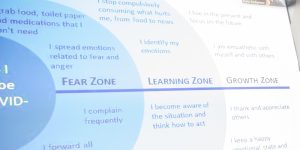
COVID19 Insights: Mapping Diversity and Community
Dario Rodrighiero, Elian Carsenat, Gabriel Carsenat, Eveline Wandl-Vogt
COVID19 is a fire accelerator. We were using the time of the lockdown to deepen our transnational collaboration and think on how we can apply our knowledge and skills to current real world problems related to the pandemics. This visualization based on the recently developed biocultural diversity index and lexical distances. This work is unpublished up to now and unique.

Welcome to spaceEU Linz
Ars Electronica has a long history of working with space related content and narratives. The EU project spaceEU allowed them to open new collaborations on a European level. Together with eleven organizations, Ars Electronica developed and produced a wide range of space engagement activities addressing youth, families and teachers.
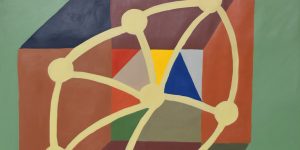
museum of knowledge science
Eveline Wandl-Vogt, Atiq Hashmi, Andreas Brandner, Louise Deininger
Virtual co-design session - Knowledge is at the heart of sustainable development. The achievement of the Sustainable Development Goals requires therefore effective knowledge management. However, knowledge needs to be understood in regional, societal, historic and cultural context. Art and culture are essential to the understanding of knowledge, specifically when knowledge - and its various aspects and processes - is reflected as a subject of art. Beyond reflecting knowledge, art is also a medium of knowledge, like articles or books.
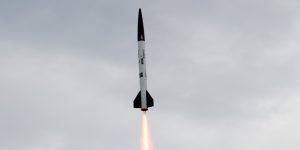
CanSat
Countless satellites orbit earth. They constantly provide new images and insights about our planet and move it into ever new perspectives. The view from above is the starting point for an interdisciplinary view of the Earth and the implementation of these themes in design lessons.
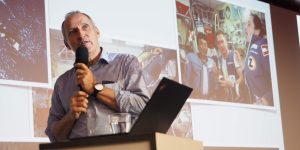
Worldviews of scientific consideration and creative (re)interpretation
Countless satellites orbit earth. They constantly provide new images and insights about our planet and move it into ever new perspectives. The view from above is the starting point for an interdisciplinary view of the Earth and the implementation of these themes in design lessons.
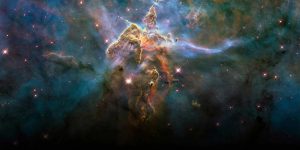
Best Of ESERO
ESERO Austria (AT)
ESERO (European Space Education Resource Office) is a project run by the European Space Agency (ESA) and education partners in various European countries to promote the interest of young people in scientific issues (MINT subjects in primary and secondary education). In order to achieve this goal, ESERO offers teachers a wide range of teaching materials and training programs. ESERO Austria has been active at the Ars Electronica Center Linz on behalf of ESA and FFG/BMK since 2016.
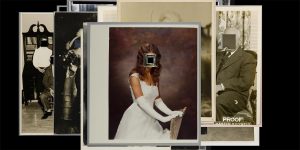
CURATORIAL A(I)GENTS
metaLAB (at) HARVARD
Eight experiments in the computational curation of collections - Curatorial A(i)gents consists in eight machine-learning-based experiments in and around museum collections and data sets developed by members and affiliates of metaLAB (at) Harvard, an idea foundry, knowledge-design lab, and production studio experimenting in the networked arts and humanities.
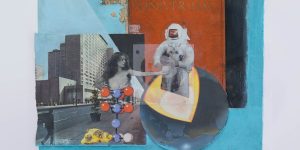
Algorithm Inventarium: methoda-thon
Matthew Battles, Max Haarich, Aleyda Rocha Sepulveda, Eveline Wandl-Vogt
Towards Inclusive, Sustainable Futures - The experimental "methodathon" is part of a series of “algorithm inventarium sprints” related to the project Algorithm Inventarium (AI+): diverse co-creation interventions combining action research approaches for accelerating the collaborative auditing of algorithms (e.g. by applying gamification techniques for data awareness, or auditing through interfaces). The aim of this session in connection with the ars electronica festival community is to identify, co-create and/or discuss specific methods, protocols and experiments for participatory research in the spirit of citizen science and community-based research in Vienna.
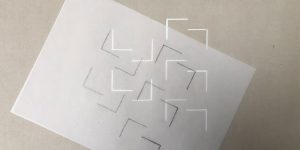
Algorithm Inventarium: The Greater Good Ethics Canvas
Eveline Wandl-Vogt, Henry Dobson, Max Haarich
Towards Responsible, Humane Technologies - In this interaction we are introducing the “Greater Good Ethics Canvas” to be used for the development of Humanity Centered Technology.

STARTS Exhibition
Kepler's Garden on the JKU campus
STARTS is a platform aiming to foster alliances of technology and artistic practice that effectively implement European policymaking to nurture innovation and that also benefit the art world.
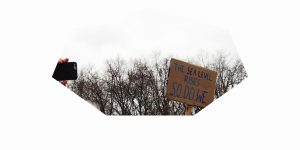
Creative Question Challenge: Radical change by working together
Kat Austen (UK/DE), Indrė Žliobaitė (FI), Laurence Gill (IE), Andrew Newman (AT/AU)
'Let us finish what we started'. This is how the UN introduces its first Sustainable Development Goal - to end poverty in all forms and dimensions by 2030. The 17 Sustainable Development Goals and their 169 targets have been described as a sprawling, misconceived mess of grandiose intentions. The title of the development agenda itself - 'Transforming our World' - oozes utopian ambition. It was adopted by 193 nations in 2015. Five years later and with ten years left, how do you think our world will transform?
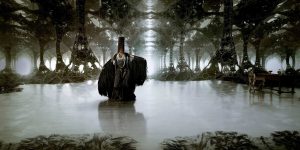
2020 - Finally Digital?!
Christina Steinbrecher-Pfandt (US), Renger van Den Heuvel (NL), Sabine Himmelsbach (DE/CH), Nanne Dekking (US/DE), Alain Servais (BE), Paul Frey (AT), Alfred Weidinger (AT), Casey Reas (US), Kate Hollenbach (US), JiaJia Fei (US), Raina Mehler (US), Magda Sawon (US), Sharon De Mattia (US) and Thomas Kohler (DE)
2020 started with a bang that made the art industry pivot away from its established codes of conduct almost overnight for sheer survival. From the exchange of courtesies to remote work structures, old customs required immediate redesign in response to the crisis. As a result, the online space gained even more significance as the only platform for business and commercial transactions, affecting even the art industry and its age-old reliance on in-person interaction.
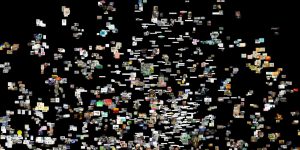
Networked Archives
Oliver Grau (DE), Dagmar Schink (AT), Christiane Paul (DE/US), Mariano Sardón (AR), Rafael Lozano-Hemmer (MX/CA), Manuela Naveau (AT)
Panel - In a world in which we increasingly rely on online content, media art archives and platforms are no exception. The Networked Archives panel addresses their role in making media art accessible online, and highlights various approaches to the field. As archives and metadata are central issues and the base for the digital content sector they are evolving into important online value chains. How can archives be monetized, contribute to the developments in the media art markets and form base for online platforms?
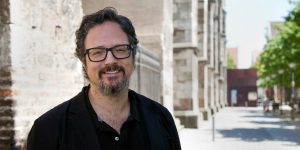
Best Practices for the Conservation of Media Art from an Artist's Perspective
Rafael Lozano-Hemmer (MX/CA)
Talk - For the past five years, media artist Rafael Lozano-Hemmer has been developing a system of procedures to help his studio deal with the maintenance of hundreds of computerized artworks that are in collections around the world. In this talk, Rafael will go over the main methods to accomplish this, in the hope that other artists will adopt them and create realistic expectations for potential collectors.
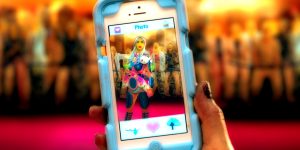
Business Models for Online Contents
Brendon Ciecko (US), Ulvi Kasimov (UK) and Aleksandra Artamonovskaja (CZ/UK), Sabine Seymour (AT) Moderators: Nathalie Pichard (CH), Thierry Baujard (FR)
The panel Business Models for Online Contents will investigate various entrepreneurial endeavors of platform-based access to online content, and how they are monetized. Crowdfunding, licenses or subscription models are only a few of the strategies institutions have to generate revenues in cultural & creative industries, and to secure revenue for artists and content developers.
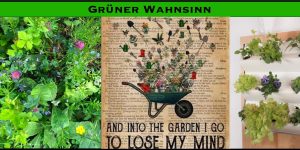
Green Nonsense
Green Nonsense is a creative food laboratory where knowledge transfer is of central importance. The aim is to spread awareness of wild medicinal herbs, which grow in the wilderness and are used in traditional European medicine, as "food and experience design".
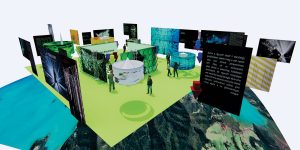
Get.Inspired
Alejandro Martin (ES), Bjorn Lustic (US), Holger Volland (GE), Jens Heithecker (GE), Patrick Tomelitsch (AT), Becky Lees (UK), Cyberballet (DE), Mikael Fock (DK), Sabine Seymour (AT)
This year’s Get Inspired session seeks to cover a vast array of interesting, diverse practices and approaches with a focus on digital and virtual projects, virtual events, platforms and contents. The panel will present examples from events, fairs, tourism, performance venues and museums.
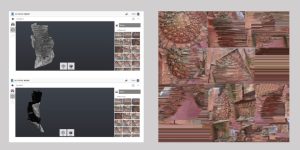
Co\\aborative Conc(re)te
Gareth Proskourine-Barnett (GB), Mike Dring (GB), Alessandro Columbano (IT)
Co\\aborative Conc(re)te is an ongoing conversation between the artist collective, C100, and the cityof Birmingham using architecture to examine notions of progress, change, dis-location, and discovering the lost, forgotten and misplaced works reflecting a landscape of continual synthetic flux. When a building is demolished, it becomes a ghost. Its image haunts us, reminding us of a future that never came to be. But what if previous versions of the city remain in the digital realm. Our events explore what happens when a building that no longer occupies physical space lives on within digital networks - when it ceases to exist the physical matter its occupation of virtual territories take on an added significance? We (re)construct, (re)imagine and (re)build an idea of the future, for temporary gatherings in galleries or other unexpected venues as we work across sound, digital imagery, printed works, moving images, and structural models. Using adapted archival material and found soundscapes, C100 celebrates a collective vision for the future city, one lost to the bulldozer, the other emergent from the dust.
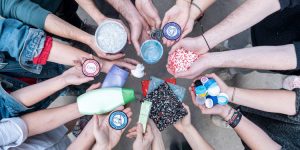
Meet the S+T+ARTS Community: Building Open Source Platforms
Joseph Klatt (US), Sören Lex (AT)
Precious Plastic and Precious Plastic Universe, started by industrial designer Dave Hakkens in 2013, is one of those platforms: focused on the reduction of plastic waste through sharing an open source toolkit of technologies and ideas, it has become a global movement of 80.000 people connected by the same passion and vision.
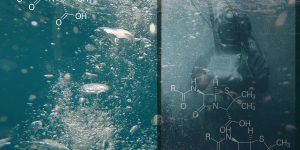
Meet the S+T+ARTS Community: Art & Science Collaborations
Ingeborg Reichle (AT), Michael Sauer (AT), Robertina Šebjanič (SI), Gjino Šutić (HR)
When artists, scientists and scientific research institutions join forces on collaborative projects, the collision of methods often leads to new and exciting perspectives for both the artistic and scientific practice.


